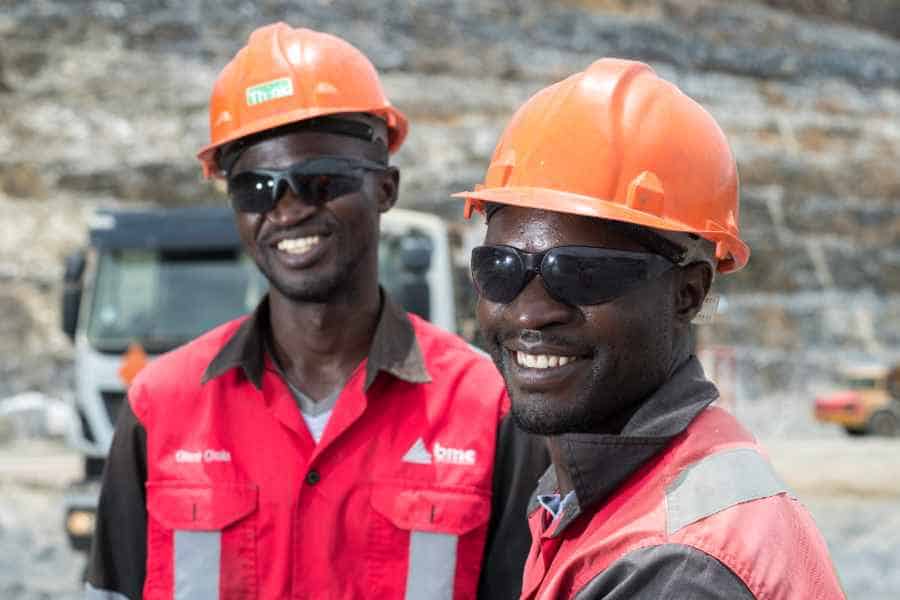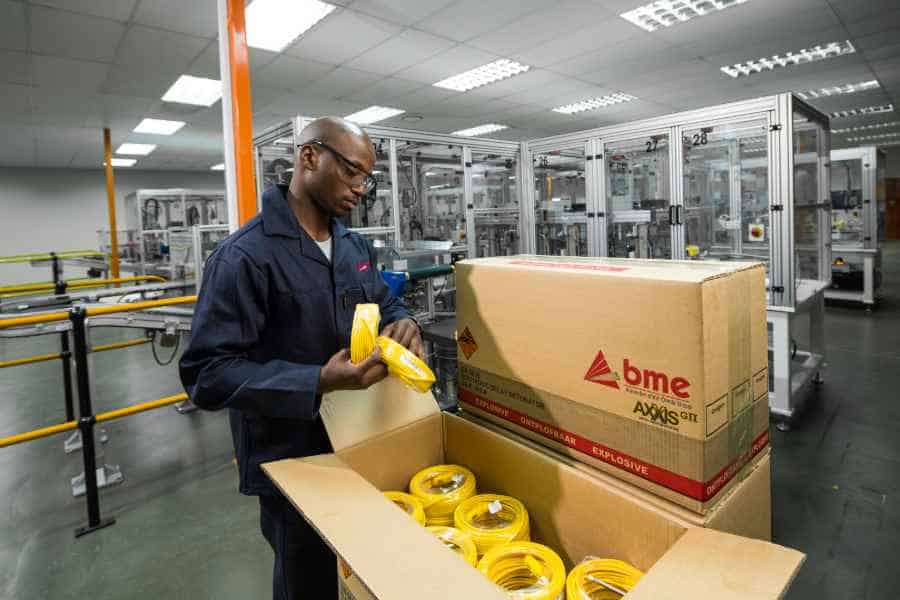BME Namibia is building its local skills, technical capacity and supply chain to consolidate and grow its position in Namibia’s mining sector, according to Albie Visser, BME’s general manager for South Africa and Namibia.
BME Namibia is building its local skills, technical capacity and supply chain to consolidate and grow its position in Namibia’s mining sector, according to Albie Visser, BME’s general manager for South Africa and Namibia.
While there was a slow-down in the Namibian mining industry in 2014, exciting new projects such as B2Gold’s Otjikoto gold mine and Weatherly’s Tschudi copper mine have recently come on line, lifting the outlook for the sector. Among other projects in the pipeline are Swakop Uranium’s Husab mine, expected to produce by end-2016.
“We have built a presence in Namibia since 1994 based on our confidence in the country’s people and its minerals,” said Visser. “Our team of 37 staff members at our Swakopmund head office are all Namibians, with the training and experience necessary to run a high-performing and independent operation.”
The office serves customers in the copper, gold, uranium and zinc sectors, as well as smaller quarries and road aggregate providers – supplying them with cutting-edge blasting expertise and products. BME is a leading supplier of bulk emulsion explosives in Africa, as well as initiating systems, electronic detonators, and blast planning software.
“Our priority in Namibia has been to contribute in every way possible to local economic development, giving us the resources and network we need to operate independently within the country,” he said.
This has meant empowering local people to lead and manage the business, and promoting local enterprise through the business’s supply chain.
“We are also working on a partnership which will see the launching of a Namibian-owned transport company to serve some of our logistics requirements between Swakopmund and our Namibian customers,” said Visser.
He said it was vital for the empowerment of local business people in Namibia that service providers develop their ability to compete with counterparts in South Africa and other neighbouring markets.
“The stability of Namibia’s society and economy means that operational risk is very low – so we believe that there is plenty of scope for local businesses to become more competitive,” he said.
Government is in the process of developing the New Equitable Economic Empowerment Framework (NEEEF) to ensure that Namibian resources are shared in an equitable and sustainable way. The policy also wants to see the implementation of measurable policies of redressing and redistributing wealth. It is hoped that NEEEF will help remove barriers of socio-economic advancement to enable previously disadvantaged persons to access productive assets and opportunities of empowerment.
“At BME, we have been applying these principles for many years in the country, without them being a legal requirement, because we see them as the foundation for ongoing economic stability and growth,” he said.
In another development, BME is further raising the technology bar in Namibia by establishing a technical division at its Swakopmund office. The unit will have a special focus on introducing BME’s highly specialised mobile testing vehicle, used for auditing purposes on its drilling and blasting sites.





